

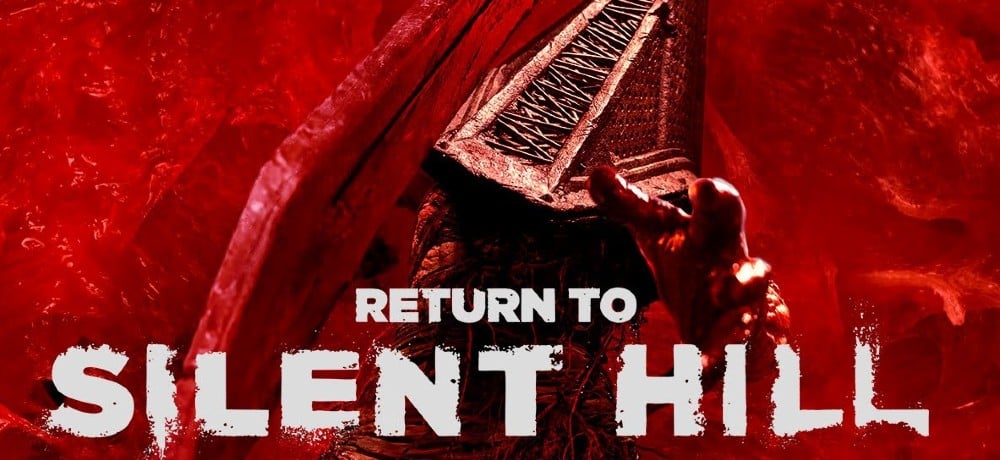
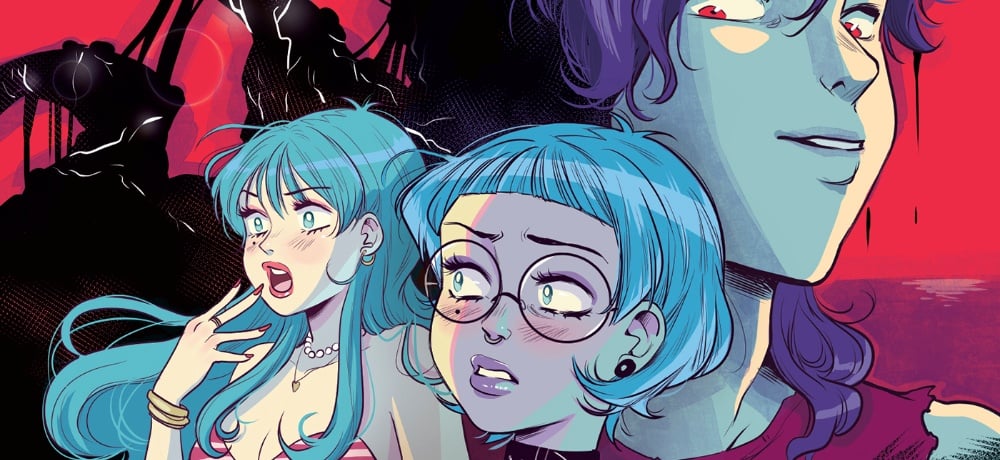
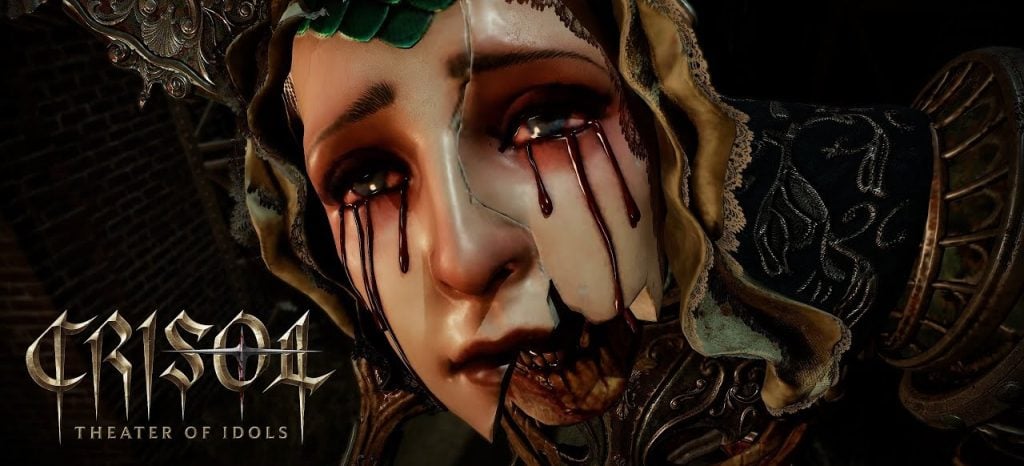
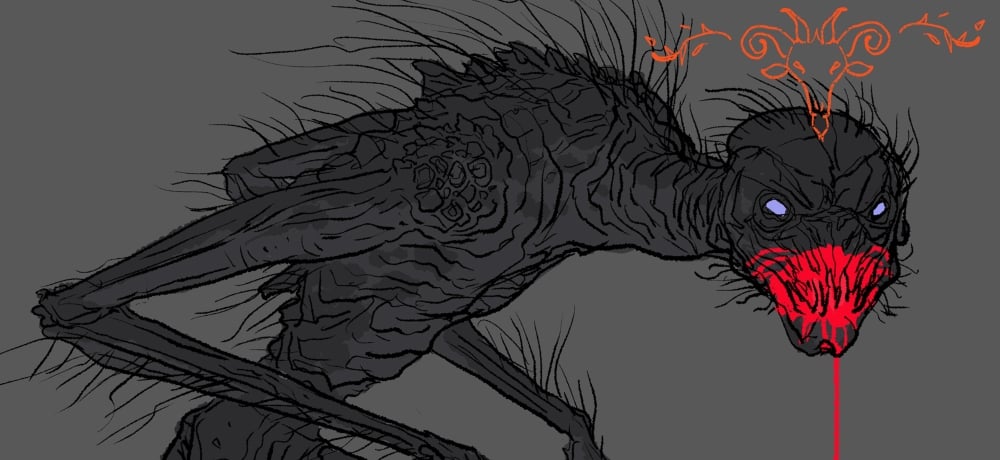
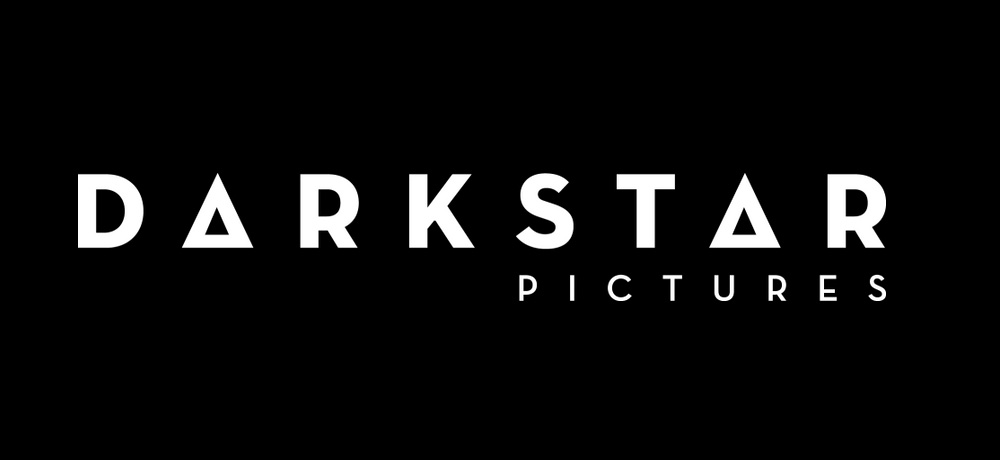
For this writer, it’s been fascinating to watch the evolution of Dark Star Pictures over the last few years, as they’ve become one of the most interesting distributors working in the genre space today, showcasing films like Jumbo, PVT Chat, Dementer, Attack of the Demons, Koko-Di Koko-Da, and Climate of the Hunter, as well their most recent release, Honeydew, which makes its digital debut this week.
Daily Dead recently had the opportunity to speak with Dark Star’s Creative Director, Josh Goldbloom, and we discussed his background in the film festival scene and how that led to him joining Dark Star Pictures’ founder Michael Repsch in the indie horror trenches to help provide filmmakers with the opportunity to get their films out there for fans to enjoy. Goldbloom also gave us some insight into why the word “challenging” isn’t necessarily a bad thing when it comes to marketing a film, venturing into production, and more.
I know you have a background in film festivals and repping different films over the years as well. How did you end up connecting with Michael at Dark Star then and realizing you guys should team up to take that brand to new levels?
Josh Goldbloom: I met Michael Repsch, who is the president of Dark Star. He's also a Philly guy. Funny enough, I met him on a jury at the Philadelphia Film Festival, where we were both sitting as jurors, and I think we just kind of hit it off, first and foremost, as friends. Then there was always just a deep respect that I had towards his sensibilities. So, we always just communicated through that, and I think just as friends, we just started talking about things that we were both looking to do, and that natural connection was built in already, so it almost seemed like it came together organically.
The very foundation of this started with, "Hey, what does this partnership look like? There's no “I” in team, the more the merrier, so let's build this out together.” And it's coming together in some pretty fascinating ways. But it's exciting for me because, no longer doing festivals, my focus now is just on production. But at the core of what I do is wanting to support the art form that I love and the filmmakers within this space, so being able to acquire and release these films is great. I think the sensibilities that Michael and I both share is that we really want to work with the filmmakers, so the filmmakers are always involved in the conversations. We never just deliver a key art to them and say, "Hey, this is what you've got." They're there providing notes with us along the way. We take that very seriously.
Everything that you guys have picked up and have been championing, I love the fact that it all challenges that traditional genre space that we're so used to as fans. I'm curious, when you're looking at movies, what is it that you look for that makes it perfect for what you guys are doing as a company?
Josh Goldbloom: You know, “challenging” isn't a bad word. I think at the core of Dark Star, challenging isn't something we're afraid of. I think every film, every medium, every actor, every director, anything in this industry needs some sort of ambassador, so I think it's really just how we're able to connect with our audience. Good content is good content, but how do you get that content seen by the masses? At the end of the day, that's always our central focus is the movies in the independent horror genre space, or just genre film altogether, I think we can all agree that they're just as good, if not better, than anything that you're going to see coming out of Hollywood. But you don't have that P&A spend. We can't put millions and millions of dollars of marketing funds behind these movies. So I think it's just, step one, we recognize that this is an incredible film. And step two, is this something we really want to support? Step three is: so how do we do that?
So I think our connection here that we've made, at least with genre cinema, is that Bloody Disgusting spent, what, more than a decade building out their brand, a trusted brand, to the consumer, and that's definitely a focal point for us is that trifecta of the film, the capacity that Dark Star has to promote these movies and the impressions that Bloody Disgusting can help us create. And on top of that, I think a lot of it is just us really, really working with the filmmakers and just enjoying the challenge that's ahead of us. I think we get scared away by numbers. We want to change that. Where other distributors see small numbers, we say, "That's the past. This is a new day. What can we do with these movies?"
I think for us, it's the things that exist in the fringe space. It's outsider art. I get excited by art that lives outside of the box and I think that's where it's at its most genuine form. I mean, the beauty of genre cinema is that there are no rules, so you don't have to play to any sort of expectations. It's artists going out there, creating art in its most genuine form, looking for somebody to support that. I think that's always what Michael and I tend to look for, and we also just recognize the current landscape, and the marketplace is just kind of ever-changing and there's a weird ebb and flow to everything. There's a strange dynamic that's happening now, especially with all the streaming companies.
That's what excites me about genre cinema—it’s the punk rock aspect of it all. We don't care about how much money we make at the box office, we just care about supporting and making the most badass movies possible. And that's something that I think will always motivate us at Dark Star.
As somebody who has worked festivals and has been working in the genre space for a while, was that something you were very adamant about—filmmakers’ rights? So many other institutions do what they can to basically strip those rights away from them in many cases, but it seems like you guys are more focused on creating real partnerships.
Josh Goldbloom: It all starts and stops with Michael, the president of the company. I was representing Attack of the Demons and I sold Attack of the Demons to Michael. I think what became so important was the conversation is always about, "Look, we don't know everything. We have a lot to learn from the filmmakers," and I think vice versa, the filmmakers can learn a lot from us. So what's important at Dark Star is that they're always involved in our conversations. When it comes to certain key art, you talk about Redbox for example, there's certain poster art that you want to deliver to Redbox that the filmmakers aren't going to be happy with, and it's also art that you probably wouldn't want to showcase when you go theatrical or on SVOD, but you have to have a conversation with the filmmakers, they have to understand that. Communication is everything, and so we're always going to listen to what they have to say. We're always going to implement their notes, and we want to hear their notes because, I think at the end of the day, those are the true creatives that we're looking to represent.
That's just where I come from. I think communication is everything and at the end of the day, you want your filmmakers to be happy. I'll speak for myself here, but I know how much work goes into making a movie and I know the blood, sweat, and tears. I'm dealing with it right now with V/H/S 94, and we need to match that. And if we're not willing to match that, then why are we even in this space? What's the point? I think Michael and myself and Brad Miska are all doing this just because we love the art form. It's just about never forgetting that we're not Netflix, we're not Disney or Fox or Paramount. We're just a bunch of fans trying to support the art form that we love and make a living doing it.
Dark Star has made quite a few acquisitions as of late and now you're doing production and things of that nature. Are you guys going to try to find a way to keep doing both moving forward, or are you guys moving more in the direction of being more production-centric? I'm just curious what the balance is going to be for Dark Star Pictures moving forward.
Josh Goldbloom: I mean, we're exploring all those conversations. I think the sky's the limit for what we can do. Our central focus now is on acquisitions and releasing, but as time goes on, sure. Brad and I are working together in production and I think there's clearly a connection there. So when the timing is right, we'll certainly make those moves, but we're always chatting about the evolution of what this brand can be.
I think that's why the independent space is just so important, because it's pure. It's fucking real. Nobody's trying to make movies and create action figures. Nobody cares about getting a video game. We're supporting artists that just want to make art, and at the end of the day, I think that's what it's all about. I don't work in this space because I want to be a billionaire. If I wanted to be a billionaire, I would be doing something else entirely. I just work in this space because I love it and it's all I know. It's all I want to do. It's passion. And I think once you get away from the passion, it just doesn't become real anymore, and that's not something I want to be involved in.
---------
Go HERE to catch up on all of our Indie Horror Month features!